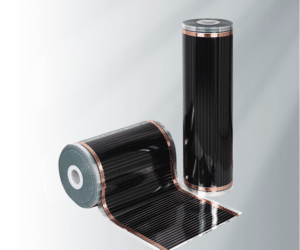Why Does Graphene Coating Have Such Excellent Corrosion Resistance?
In recent years, graphene has attracted widespread attention due to its outstanding properties. As a two-dimensional material composed of carbon atoms arranged in a hexagonal lattice, graphene has shown tremendous potential in fields such as electronics and energy. More recently, it has begun to find applications in corrosion-resistant coatings. So, why does graphene coating perform so well in corrosion resistance? Let’s take a deeper look into this issue today.
Table of Contents
Toggle1. The Structural Characteristics of Graphene
The fundamental structure of graphene is key to its remarkable physical and chemical properties. It is a two-dimensional material made up of a single layer of carbon atoms arranged in a hexagonal pattern, giving it exceptional mechanical strength, good thermal conductivity, and remarkable electronic properties. More importantly, graphene is virtually impermeable to water and gases, making it an ideal material for corrosion protection applications.
The carbon atoms in graphene are bonded by very strong covalent bonds, making its structure extremely stable. In simple terms, graphene acts as a “protective layer,” effectively blocking external corrosive substances and preventing the penetration of oxygen and moisture. This is crucial in preventing oxidation and corrosion of metals or other materials.
2. The Corrosion-Resistant Mechanism of Graphene Coatings
The corrosion resistance of graphene coatings is mainly attributed to the following factors:
(1) Barrier Properties
Graphene has extremely low permeability to gases and water due to its unique two-dimensional structure. This physical barrier effectively isolates the substrate (such as steel or aluminum) from the external corrosive environment, preventing the corrosion process from taking place by stopping moisture, oxygen, and other corrosive substances from penetrating.
(2) Chemical Stability
Graphene is highly stable and does not react easily with most chemicals, which enables it to offer strong protection in harsh environments. Even in the presence of corrosive agents like acids, alkalis, or saltwater, graphene coatings can resist their damaging effects effectively.
(3) Self-Healing Ability
Graphene not only provides protection but also has certain self-healing properties. Studies have shown that when small cracks form on a graphene coating, the material’s self-assembly characteristics allow the cracks to repair themselves, restoring the coating’s protective function. This feature significantly enhances the durability and lifespan of graphene coatings.
(4) Enhanced Adhesion to Substrates
Graphene’s high specific surface area and strong mechanical properties improve the adhesion between the coating and the substrate. This strong adhesion not only makes the coating more wear-resistant and durable but also enhances the overall corrosion resistance of the coating.
3. Other Advantages of Graphene Coatings
In addition to excellent corrosion resistance, graphene coatings offer several other advantages that make them highly desirable in practical applications:
- Lightweight and Efficient: Graphene coatings can be extremely thin yet provide remarkable protection. Compared to traditional thick coatings, they offer higher efficiency and reduce material waste.
- High-Temperature Resistance: Graphene can withstand very high temperatures, making graphene coatings stable and effective in high-temperature environments.
- Environmental Friendliness: Graphene coatings are also environmentally friendly. Compared to traditional corrosion-resistant coatings that may contain harmful substances like lead, graphene coatings are greener and safer.
4. The Future of Graphene Coatings in Practical Applications
The potential of graphene coatings in corrosion resistance is vast, particularly in industries that require long-term protection against corrosion, high temperatures, and mechanical stress. For example, in sectors such as petrochemicals, marine engineering, and aerospace, where materials are exposed to harsh environments, graphene coatings can offer outstanding performance. Traditional corrosion-resistant coatings often fail in extreme conditions, whereas graphene coatings maintain their protective properties due to their unique physical and chemical characteristics.
Additionally, as the cost of graphene production continues to decrease, graphene coatings are expected to become more widely used in various industries, emerging as a new generation of high-performance corrosion-resistant materials.
Conclusion
Graphene coatings exhibit outstanding corrosion resistance due to their unique structural properties and effective corrosion-resistant mechanisms. They not only block corrosive substances effectively but also offer chemical stability, self-healing ability, and strong adhesion, providing long-lasting and environmentally friendly protection. With ongoing advancements in graphene technology and decreasing costs, we are likely to see graphene coatings in more applications and industries in the future.
If you have more questions or experiences regarding graphene corrosion-resistant coatings, feel free to share and discuss them in the comments!
References
For a deeper understanding of the corrosion-resistant properties of graphene coatings, the following sources can be consulted:
- “Graphene: Properties, Preparation, and Applications” by M. R. G. Azimi, et al. – A detailed overview of the various properties and applications of graphene, including its use in protective coatings.
- “Graphene-Based Materials in Corrosion Protection” by S. F. De Araújo, et al. – This paper discusses the mechanisms by which graphene and graphene oxide are used in corrosion protection.
- “Advanced Coatings for Corrosion Protection” by Z. M. Bai and S. P. Shi – An exploration of various advanced materials, including graphene, for corrosion-resistant coatings.

